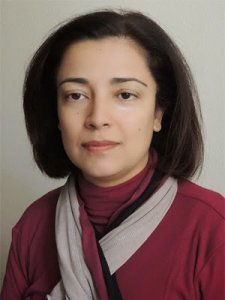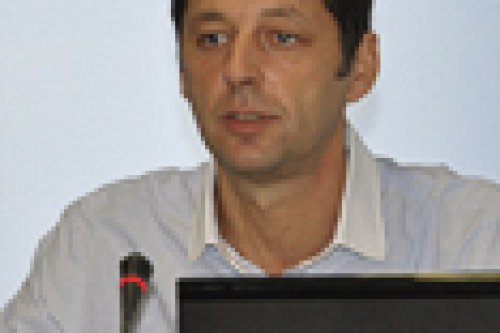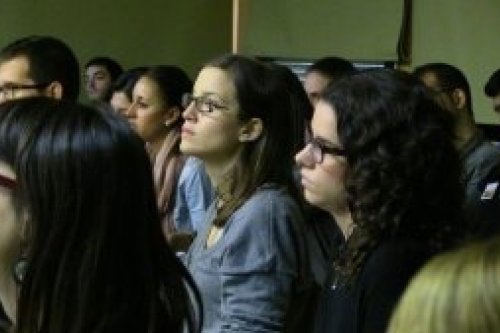


Languages
- Español
- English
Claudia Alvares (ECREA) on the Paris Forum: "to enhance democratisation as well as citizens' engagament"

Claudia Alvares, speaker on the Media and Information Literacy Forum, has said that this is an opportunity for a "collective reflection and discussion on what is currently necessary, in terms of policy, to enhance both the possibilities of democratisation of decision-making processes as well as citizens' engagement with their 'lifeworld'.
Alvares is a member of the Scientific Committee of the European Science Foundation's Forward Look ‘Media Studies: new media and new literacies', which aims to identify a common European research agenda. Within this remit, she has focused specifically on the research line that centres on political engagement in an age of mediatisation.
Follow Alvares' ideas at the European Media and Information Literacy Forum in Paris, which will be held on 27-28 May, 2014 at UNESCO headquarters.
GCE: What are your expectations towards the European Media and Information Literacy Forum? What advances, concerning policies, research and cooperation should be expected from it?
CA: The European Media Literacy Forum is occurring in a context of global crises -economic, cultural, political, social- all of which have repercussions on how citizens view themselves and the way that they relate to each other both at micro and macro levels. Taking into account that every level of society is profoundly impacted upon by the media, the capacity of citizens being able to respond to the context of crises is greatly conditioned by the way they are able to critically engage with and participate in the media.
My expectations towards the European Media Literacy Forum is that it may allow for a collective reflection and discussion on what is currently necessary, in terms of policy, to enhance both the possibilities of democratisation of decision-making processes as well as citizens' engagement with their 'lifeworld' through the media, without these objectives being confined to laudatory discourses on the wonders of new media.
The fact is that despite new media facilitating the widening of the public sphere, the logic of political economic critique remains pertinent to understanding their insidious and instrumental attempts to condition information and cross personal data, with significant risks to the rights to being informed and to preserving individual privacy.
GCE: What are the main challenges that Media literacy is facing at European level?
CA: On the European level, the EU has promoted various initiatives to combating the digital divide so as to promote a more inclusive use ot new technologies. Issues linked to the digital divide may have suffered a regression in the Southern countries that have been hit the hardest by the economic crisis, due to widespread cuts in the education sector that have in part restricted, at least in Portugal, the widespread investment in new technologies at Schools.
Moreover, the inclusion of Media Literacy course units at the High School level, in countries where they do not exist, appears to be have been compromised by the current context of lack of funds. This context of economic restritcions is particularly alarming if one understands the main challenge facing Media Literacy at the European and global levels as being essentially related to the misappropriation and misuse of personal data online, which can only be avoided by teaching individuals how to responsibly use new technologies.
GCE: We are expecting 300 participants in the Forum, most of them stakeholders in this field, not only from Europe but also from other continents, mainly Africa and America. There are also participants from ministries, industry, social organizations, film libraries, universities, regulatory authorities, etc...: What should we expect from this opportunity for dialogue?
Taking into account the huge diversity in geographical and cultural backgrounds of participants and respective areas of expertise, I think that discussions should be essentially channeled into a particular, unifying field that translates as a common concern. This unifying theme could easily be that of new technologies, for independently of the degree to which these may be present in a particular region, they are indeed the main contemporary trigger to discussing conceptions of literacy, framed along various dimensions: 'knowledge deficit' that should be overcome essentially through media education so as to enable participation; public involvement in technology, in which public concerns challenge the science policy of governments and other authorities; the critical capacity of 'publics' to deconstruct normalised discourse on technology as conditioned by institutionalised forms of organisation and social relations.
GCE: Does the European Foundation of Science have any specific presentation or project to propose/launch at this forum?
Yes, the European Science Foundation will present the Forward Look in Media Studies, called 'Media in Europe: New Questions for Research and Policy', in which strategic orientations for European research over the next 5-10 years are delineated on the basis of the exploration of four main topics: political engagement in an age of mediatisation, digital divides, content creation and creative industries, and identity formation: from facebook groups to institutional forms of cultural heritage.
GCE: What is the importance of this meeting concerning the definition of an European research agenda?
CA: The meeting will be important to identify a common European research agenda, linked to media literacy from a perspective focusing on new technologies. If a commonground is found regarding such interests, transcending national divides, this will be helpful in promoting a cohesive organisational framework for media research at the European level.However, taking into account that the meeting will include participants coming from various regions of the globe, it will be interesting to see how themes broached from a European angle are taken up from other perspectives. Thinking in strictly European terms from an isolationist perspective does not make sense, because Europe is historically, politically, socially and culturally intertwined with the rest of the world, and the themes broached within this ESF Forward Look force Europe to reflect on itself within a changing world characterised by changing relations of power.




